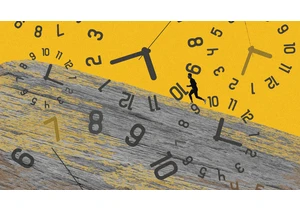It has been a chaotic few days for Pavel Durov, the CEO of Telegram, who was arrested as he landed at an airport outside Paris in his private jet over the weekend.
Following Durov’s arrest on August 24, the Telegram executive was held in custody. On August 26, French authorities shared that Durov was detained for questioning as part of an investigation over an unnamed person for a dozen different charges, including laundering money, using cryptography services without permission, and sharing images of child abuse. He has not been charged. France has through Wednesday to decide whether to charge or release the billionaire.
In a statement published on X soon after his arrest, Telegram said it abides by EU laws, and that Durov “has nothing to hide and travels frequently in Europe.” The company added: “It is absurd to claim that a platform or its owner are responsible for abuse of that platform.”
Critics have pointed out that Telegram’s defense doesn’t account for the fact that the app has been perceived as friendly to criminals because of its lax moderation efforts, and Durov’s stated willingness to flout requests from law enforcement to take down or censor content.
To be sure, EU nations have sparred with Telegram before: Germany issued a fine to the platform in 2022 for not complying with their national law. But this time officials have gone after the executive versus the company he leads. “The decision to take the CEO of a prominent company into custody—and accusing them of being an accomplice of crimes enabled by the platform—does seem unprecedented,” says Juan Ortiz-Freuler, a politics and technology researcher at the Berkman Klein Center for Internet & Society at Harvard University.
Catalina Goanta, an associate professor in platform governance at Utrecht University, says the case suggests that looking at the issue as a battle over free speech—as Elon Musk has done—is in fact a misguided framework. “Freedom of speech is not absolute, especially when an online service apparently fails to comply with a wide spectrum of laws—drug trafficking, terrorist content, child sexual abuse material, intellectual property violations—in a large number of jurisdictions,” she says. “That’s not freedom of expression, it’s just a lawless space that has a net negative impact on society.”
And because of Telegram’s notoriously hands-off approach to content moderation, France has a stronger case against Durov, who somewhat mysteriously became a French citizen in August 2021. Anupam Chander, a law and technology professor at Georgetown University, says there’s a possibility Telegram was itself benefiting from some of the illegal activity alleged by French authorities. “I can understand prosecutors jumping at the chance to seek justice against someone they believe is an aider and abetter of crime,” he says.
Durov will now face a dilemma that could have profound consequences on his company’s future: Bend to regulatory requirements to more seriously moderate content and he could duck jail time—but risk losing Telegram’s 950 million-strong user base. “If Telegram begins prioritizing moderation and collaboration with states, they will compromise the core that attracts some of their users,” says Yevgeniy Golovchenko, assistant professor at the University of Copenhagen. Choose to stand firm in the face of a criminal investigation and Durov could end up in jail—waylaying the app anyway.
It’s the case of a single individual and a single app, but it’s the story of Telegram’s survival. “Essentially, we are seeing a global fight for Telegram,” Golovchenko adds. And whichever way it goes sets a precedent that will echo far beyond this single fight.
Autentifică-te pentru a adăuga comentarii
Alte posturi din acest grup

Chris Guillebeau spent years racing against time, visiting all 193 countries before he turned 35, hosting annual gatherings of thousands, and writing bestsellers like The $100 Startup. Bu

As my family settles into a whole new city and community, I’ve been eagerly exploring a variety of sites and services for discovering new gems and getting to know our area. And while our recent cr


If you can’t afford a lawyer, it turns out there’s nothing stopping you from sending a scary-looking letter that, at first glance, seems to come from one—and hoping the recipient doesn’t read the


Tokenization has long been a buzzword for crypto enthusiasts, who have been arguing for years that blo

Ding dong ditching has resurfaced as the “door kick challenge.” But this time it could lead to criminal charges and potentially deadly consequences.
In Florida this week, five mino
